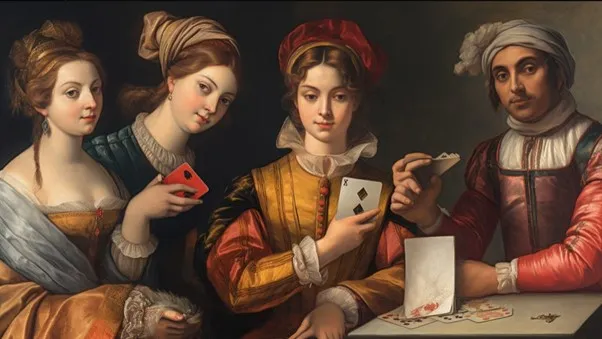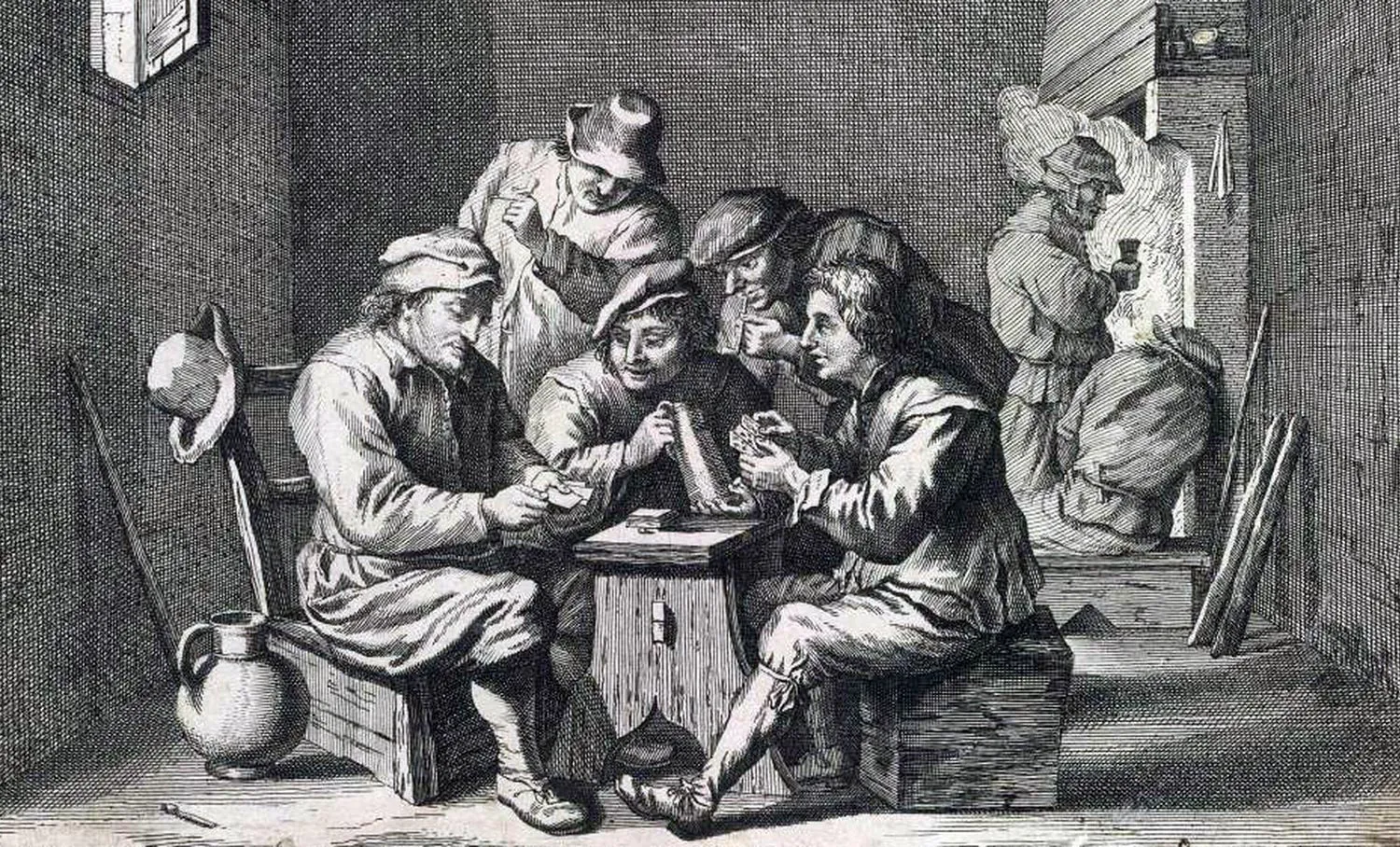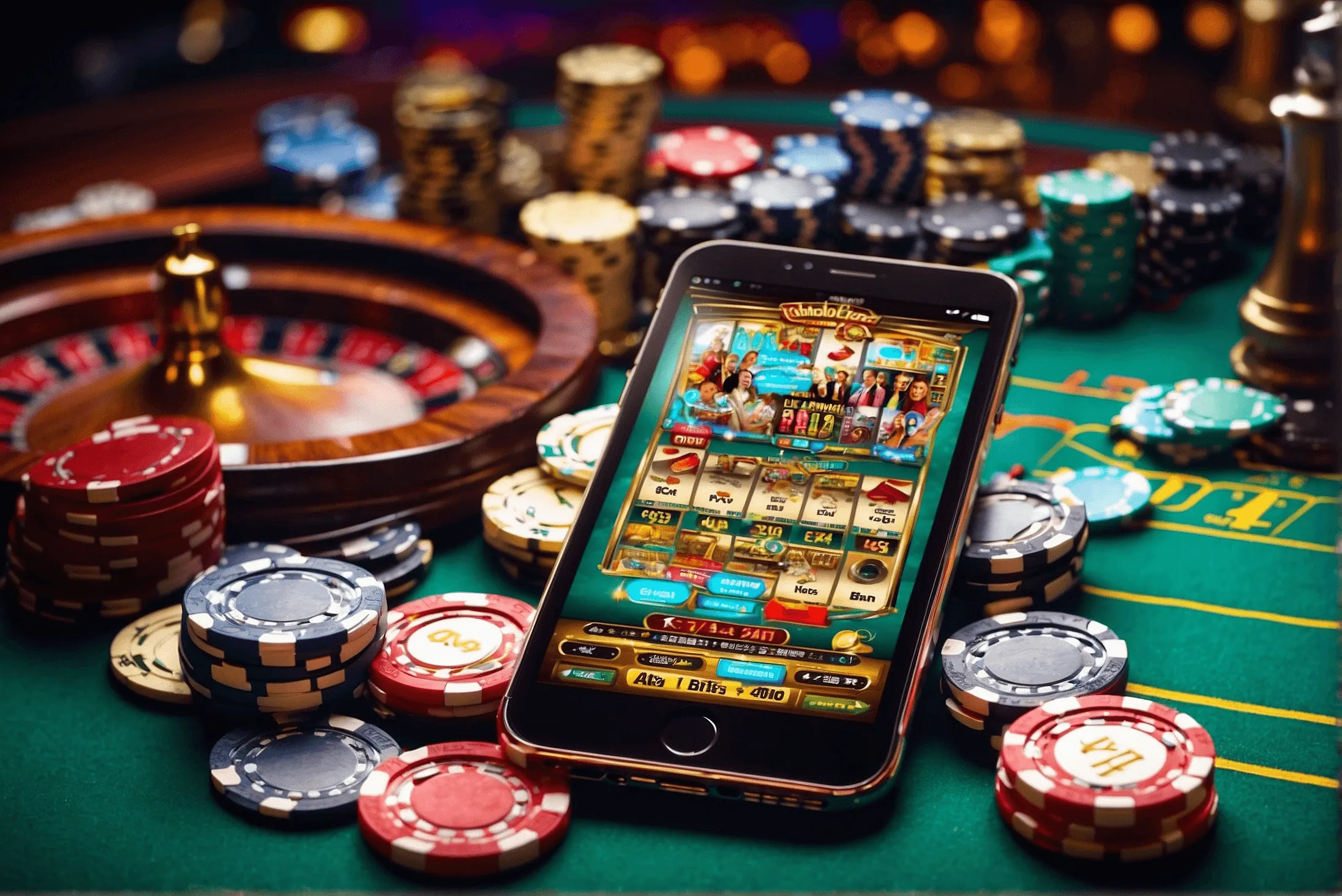
Evolution of Casino Games From Ancient Times to Modern Online Casinos
Casinos have been a source of entertainment for centuries, with games of chance and skill captivating players of all ages. From the early days of gambling in ancient civilizations to the glitz and glamour of modern casinos, the evolution of casino games has been an interesting journey filled with cultural influences, technological advancements, and changing social norms.
In this article, we will take a deep dive into the history of casino games, exploring their origins, transformations, and the impact they have had on society. We will also discuss how the rise of online casinos has revolutionized the way we play and experience these games. So buckle up and join us on this exciting ride through the evolution of casino games!

The Beginnings of Gambling: Ancient Civilizations
The roots of casino games can be traced back to ancient civilizations across the world, where games of chance and skill were played for entertainment, religious purposes, and even as a means of settling disputes. Let’s take a look at some of the earliest forms of gambling and how they evolved over time.
Mesopotamia and Egypt: The Birthplace of Dice Games
It is believed that the first form of gambling was invented in Mesopotamia around 3000 BC. Archaeologists have discovered six-sided dice made out of bones in excavations of ancient Mesopotamian sites. These dice were used to play a game called “The Royal Game of Ur,” which involved throwing the dice and moving pieces on a board according to the numbers rolled.
The popularity of dice games spread to other civilizations, including Egypt, where they were used for divination and fortune-telling. However, as gambling became more prevalent, it was banned in ancient Egypt by the pharaohs, who saw it as a threat to the social order.
China: The Birthplace of Playing Cards
While the exact origin of playing cards is still debated, many scholars believe that they were invented in China during the Tang dynasty (618-907 AD). These early cards were hand-painted and used for various games, including a form of dominoes and a game called “The Leaf Game,” similar to modern-day poker.
As trade routes expanded, playing cards made their way to the Middle East and Europe, where they evolved into the familiar deck of 52 cards with four suits – hearts, diamonds, spades, and clubs. The design and symbolism of these suits were heavily influenced by European culture and history.
India: The Birthplace of Board Games
India has a rich history of board games, with many dating back thousands of years. One of the most popular and enduring of these games is “Pachisi,” a race game played on a cross-shaped board with cowrie shells or dice. Pachisi is believed to have influenced the development of games like Ludo and Sorry in Western culture.
Another significant contribution of India to the world of casino games is “Chaturanga,” the ancestor of modern-day chess. This strategic game was played on an 8×8 board with pieces representing different classes of society, including chariots, cavalry, elephants, and foot soldiers.
The Renaissance Period (1400-1700): The Rise of Card Games in Europe

During the Renaissance period, gambling became more widespread in Europe, with card games gaining popularity among the upper class. Games like Baccarat, Faro, and Vingt-et-Un (the precursor to blackjack) originated during this time and were played in exclusive establishments like private clubs and casinos.
The wealthy also enjoyed playing lotteries, with some of the earliest recorded lotteries held in France and Italy during the 16th century. These lotteries helped fund public projects, such as the construction of bridges and roads, and were seen as a form of taxation.
However, gambling was not without its critics during this time. The Church and many governments saw it as a sinful and corrupting influence, leading to bans and restrictions on gambling activities. Despite these challenges, gambling continued to thrive, and new games were being invented and refined.
The Industrial Revolution (1700-1900): The Birth of Modern Casino Games
The Industrial Revolution brought about significant advancements in technology and transportation, allowing people to travel more and play different games from various parts of the world. This led to the spread of gambling to new territories, including America, where lotteries, card games, and dice games gained popularity.
One of the most significant developments during this period was the invention of the Roulette wheel by French mathematician Blaise Pascal in the 17th century. This game quickly spread across Europe and eventually made its way to the shores of America, where it became a staple in casinos and gambling clubs.
Another important innovation of this period was the creation of the slot machine by Charles Fey in 1895. His “Liberty Bell” machine featured three spinning reels and five symbols (diamonds, spades, hearts, horseshoes, and the Liberty Bell). The Liberty Bell machine paved the way for modern-day slot machines, which have evolved into complex games with multiple paylines and special features.
The 20th Century: The Golden Age of Casinos and the Rise of Online Gambling
The 20th century saw a significant expansion of land-based casinos, especially in Las Vegas, which became known as the gambling capital of the world. As more states in the US legalized gambling, casinos sprang up in Atlantic City, New Jersey, and other cities, offering a wide range of games and entertainment.
At the same time, technological advancements continued to shape the casino industry, with the introduction of video poker machines and electronic slot machines in the 1970s. These machines were more efficient and offered bigger payouts, leading to a surge in their popularity.
However, the biggest revolution in the world of gambling came with the advent of the internet in the 1990s. Online casinos started popping up, offering players the chance to play their favorite games from the comfort of their homes. This marked the beginning of a new era in the evolution of casino games.
The Rise of Online Casinos and Mobile Gaming
The first online casino, “InterCasino,” was launched in 1996, paving the way for a multi-billion dollar industry that continues to grow to this day. With the rise of the internet and advancements in technology, online casinos have become more sophisticated, offering a wide range of games, including slots, table games, and live dealer games.
In recent years, the popularity of mobile gaming has skyrocketed, with more people opting to play casino games on their smartphones and tablets. This has led to the development of mobile casino apps and optimized websites, allowing players to access their favorite games on the go.
Social and Cultural Impact of Gambling in the 20th Century
As gambling became more widespread in the 20th century, it also faced increasing criticism from various groups, with concerns about its negative effects on individuals, families, and society as a whole. Many argue that gambling addiction is a real problem and that the easy accessibility of online gambling has made it even more prevalent.
On the other hand, supporters of gambling point out its economic benefits, including job creation, tax revenue for governments, and tourism. They also argue that responsible gambling can be a fun and entertaining form of entertainment for adults.
The Future of Casino Games: Technological Advancements and Changing Trends

As we move into the future, it’s clear that technology will continue to shape the casino industry, with virtual reality and augmented reality expected to play a significant role in the development of new games and experiences. We can also expect to see more integration of social media and gamification elements in casino games.
Changing social norms and attitudes towards gambling may also have an impact on the types of games offered in casinos, with a shift towards more skill-based games as opposed to games of chance. This could also lead to the legalization of sports betting in more states, following the Supreme Court ruling in 2018 that struck down the federal ban on sports gambling.
Conclusion: The Endless Evolution of Casino Games
From humble beginnings in ancient civilizations to the glitz and glamour of modern casinos, the evolution of casino games has been a fascinating journey. As society continues to change, so will our favorite pastime, with new technologies, changing cultural norms, and social trends shaping the future of gambling.
Whether you prefer the classic card games of the Renaissance period or the immersive experience of virtual reality casinos, one thing is certain – the evolution of casino games is never-ending, and we can’t wait to see what the future holds!